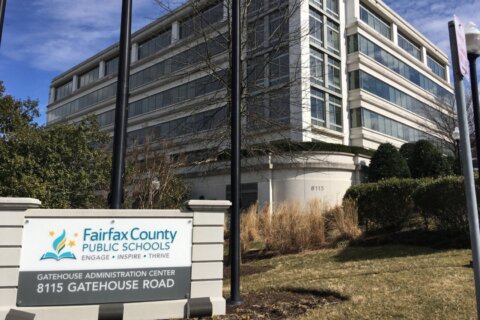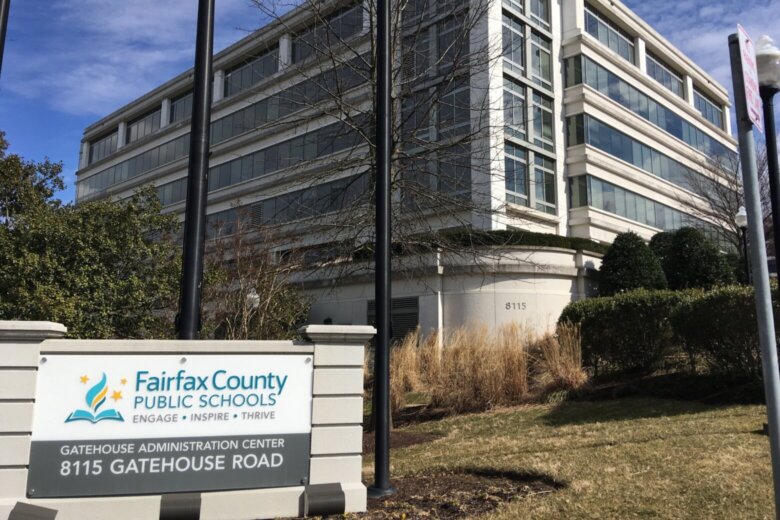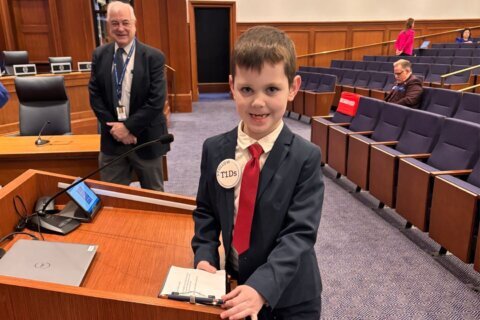
Families of children with disabilities have filed a complaint with the Virginia attorney general’s office, calling for an investigation into state education authorities and the Fairfax County School Board for allegedly violating the rights of students with disabilities.
In the complaint filed last week, the families say the Virginia Department of Education “oversees a systemically defective educational system” that is “designed to obstruct, delay and ultimately prevent families with disabled children from receiving and vindicating their educational rights.”
A spokeswoman for Virginia Attorney General Jason Miyares declined to comment on the complaint.
The same families previously filed a class-action lawsuit that claimed families of students with disabilities who challenge schools’ decisions about their education plans rarely emerge successful in hearings about those plans. That suit was dismissed last week.
“FCPS appreciates the court’s careful consideration of the arguments presented and agrees with the dismissal of the lawsuit. FCPS remains committed to working with parents to provide students with disabilities an education that meets their needs,” a Fairfax County Public Schools spokeswoman said in a statement after the dismissal.
Attorney Michael Adamson said he’s planning to file an appeal.
In the meantime, Trevor Chaplick, one of the parents who filed the lawsuit, said Miyares’ office should investigate “these many violations of students rights over the years, including the hearing officer system, in which the statistics that we’ve broken through a FOIA investigation are just scandalous. We’re just two families trying to correct and reform the system.”
The complaint filed with Miyares’ office asks the attorney general to investigate the school system under the Virginia Human Right Act — the same statute the office has based its investigation into the delayed notification of National Merit scholars upon.
The federal Individuals with Disabilities Education Act, called IDEA, guarantees students with disabilities a free appropriate public education. It also gives parents the right to challenge a school’s decisions about their student’s education in a due process hearing in front of an impartial hearing officer.
But, according to the complaint, in Northern Virginia, over 80% of hearing officers have never ruled in favor of a disabled child in the last decade. Chaplick calls the discrepancy a scandal and violation of disabled parents’ civil and federal rights.
Parents, Chaplick said, “have no idea that they’re wasting their money on lawyers and experts that statistically, they have no chance, that the parent prevailing rate is less than 2% in Virginia.”
According to data cited in the lawsuit, 14 of 22 hearing officers who issued rulings between 2010 and 2021 never ruled fully in favor of a disabled student or family in a hearing.
The result, Chaplick said, is “the delay in critical education because of a state that fights parents so hard for basic educational accommodations for which they have a right under federal law.”
Virginia also takes federal aid from the U.S. Department of Education, Chaplick said, but the funding is conditioned on the state being in compliance with the IDEA.
“And it’s not in compliance, and so those funds, those critical funds for these families, could be restricted or worse put at risk,” Chaplick said.
The U.S. Department of Education has separately initiated several investigations into whether Virginia school systems have complied with the IDEA, and in June, Virginia’s compliance level changed from “Meets Requirements” to “Needs Assistance.” That’s expected to result in more oversight from the federal agency.
A Virginia Department of Education spokesman didn’t respond to a message seeking comment on the complaint.
“Parents have no idea that virtually no one wins in the system that Virginia oversees,” Chaplick said.
WTOP’s Jack Moore contributed to this report.









